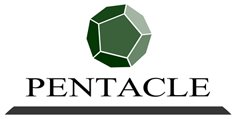I can’t imagine Mozart being less motivated to compose in the absence of Salieri. The BlessingWhite survey and similar surveys are not about 'remote' working per se - that is, "people in different places or at home getting on with work". Instead they are really investigating what happens when employees (collaborators?) have to work in a different location to where the power centre (where the boss or most of their colleagues are located) is.
In our 21st century ‘world after midnight’, the concept of ‘working remotely’ is quaint. Nowadays many employees have a computer at home that is often better than that provided by the employer. I call people who still travel from a home (where they have great 21st-century computer) to an office (where they have to use a 20th-century, disabled, firewalled machine without Flash, YouTube, sound cards etc, etc) time travellers.
During the machine age, all the workers or employees had to huddle around the capital-intensive machine. So we would commute to and from home to a factory or an office (which was where the paper was stored or the computers were kept). So it made sense while we were huddled together for us to have social connections. In addition, the management could see and ‘oversee’ the work of the employees, and so the employees could rightly demand to know ‘how they were doing’ in order to reassure themselves that their jobs were safe, and also to give them a sense of pride. In the late 20th century, mostly as a result of trying to reduce office costs, employers encouraged the employees to work from home. This idea of working remotely (remotely from who?) was called ‘telecommuting’. Mary Ann Maserech of BlessingWhite describes 10 years of telecommuting to a headquarters building. But actually, the constraint of the expensive machine is now gone. The boundary of only being able to collaborate and oversee when in close proximity is now gone. The internet has seen to that. (In reality it is the data which does the ‘commuting’ not the employee.) So even through you may describe it as ‘working remotely’ you actually work locally.
At Pentacle, as a networked organisation we expect people to contribute from where they are. The image shows Prof Eddie Obeng at work with three screens: the left one is for developing materials, writing articles etc and managing his day; the middle one for teaching, coaching and collaboration; and the right-hand one for external communications - email, LinkedIn, Twitter etc. Pentacle has also managed to roll all the best of the 21st century into the learning and collaboration platform QUBE. QUBE is basically Google Hangout, WebEx, Skype, Adobe Connect, GoToMeeting, Glance, Facebook and Dropbox all rolled into one... and surprisingly easy and intuitive to use. We use it for delivering our courses, conferences and coaching. It's also where we run our business. We huddle on QUBE, our personalities extended into special avatars called qubots, which allow head-to-head video conferencing.
 We can sit confidentially, or stand together at a flip chart. Supplier meetings are held on QUBE, planning and agreeing course designs with clients happens on QUBE. Because the rooms (called qubicles) are real, they persist, and stay open 24 hours a day, so you can come back to them when you wish, or if you are working across time zones you can always leave a sticky note on a collaborator's desk!
We can sit confidentially, or stand together at a flip chart. Supplier meetings are held on QUBE, planning and agreeing course designs with clients happens on QUBE. Because the rooms (called qubicles) are real, they persist, and stay open 24 hours a day, so you can come back to them when you wish, or if you are working across time zones you can always leave a sticky note on a collaborator's desk!We have open day events once a month. Join in and find out how about working without boundaries can make Virtual Work.





.svg/2000px-My_Wife_and_My_Mother-In-Law_(Hill).svg.png)




